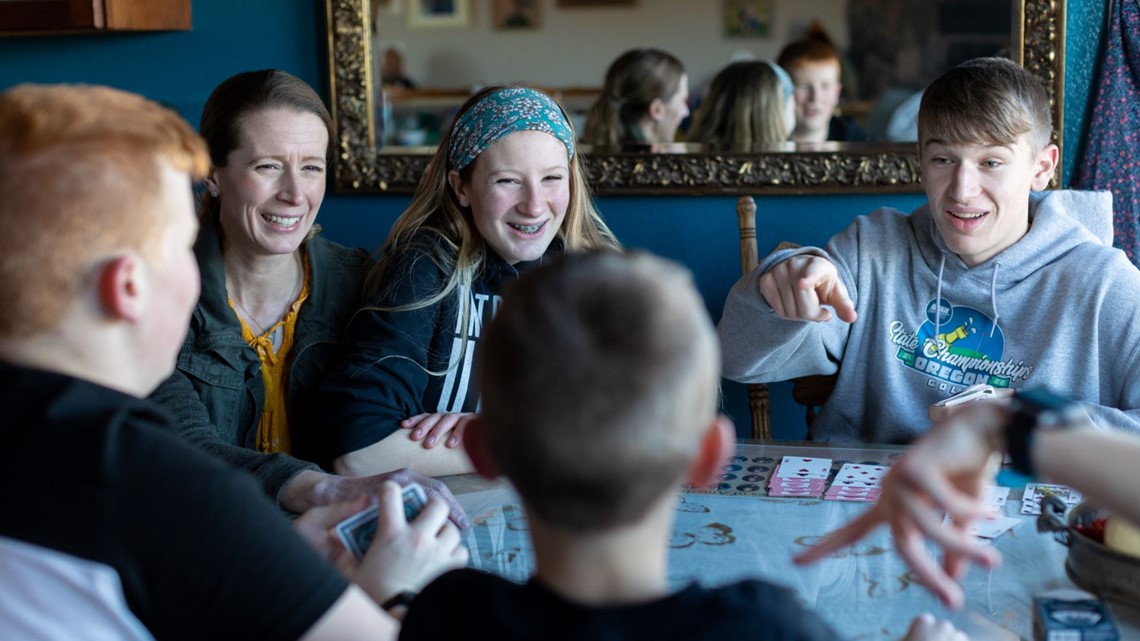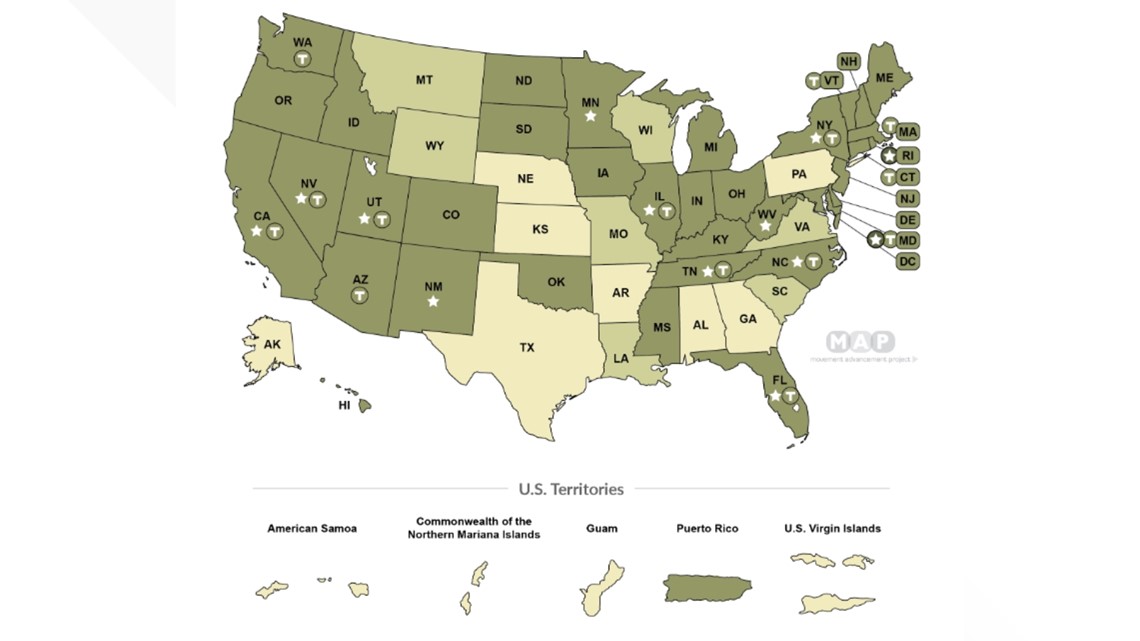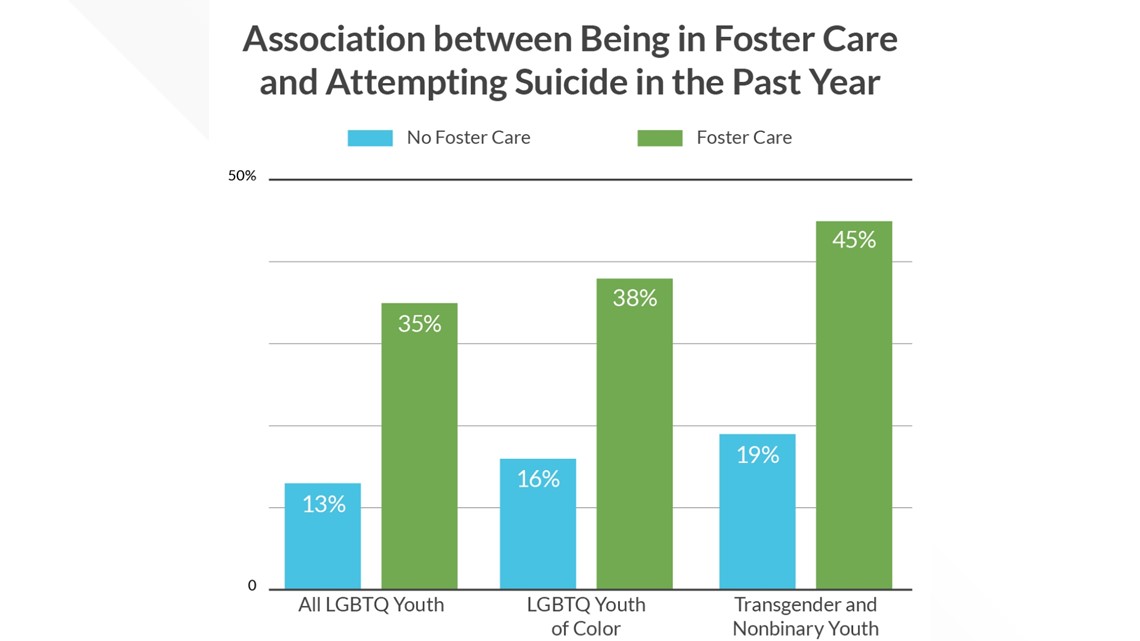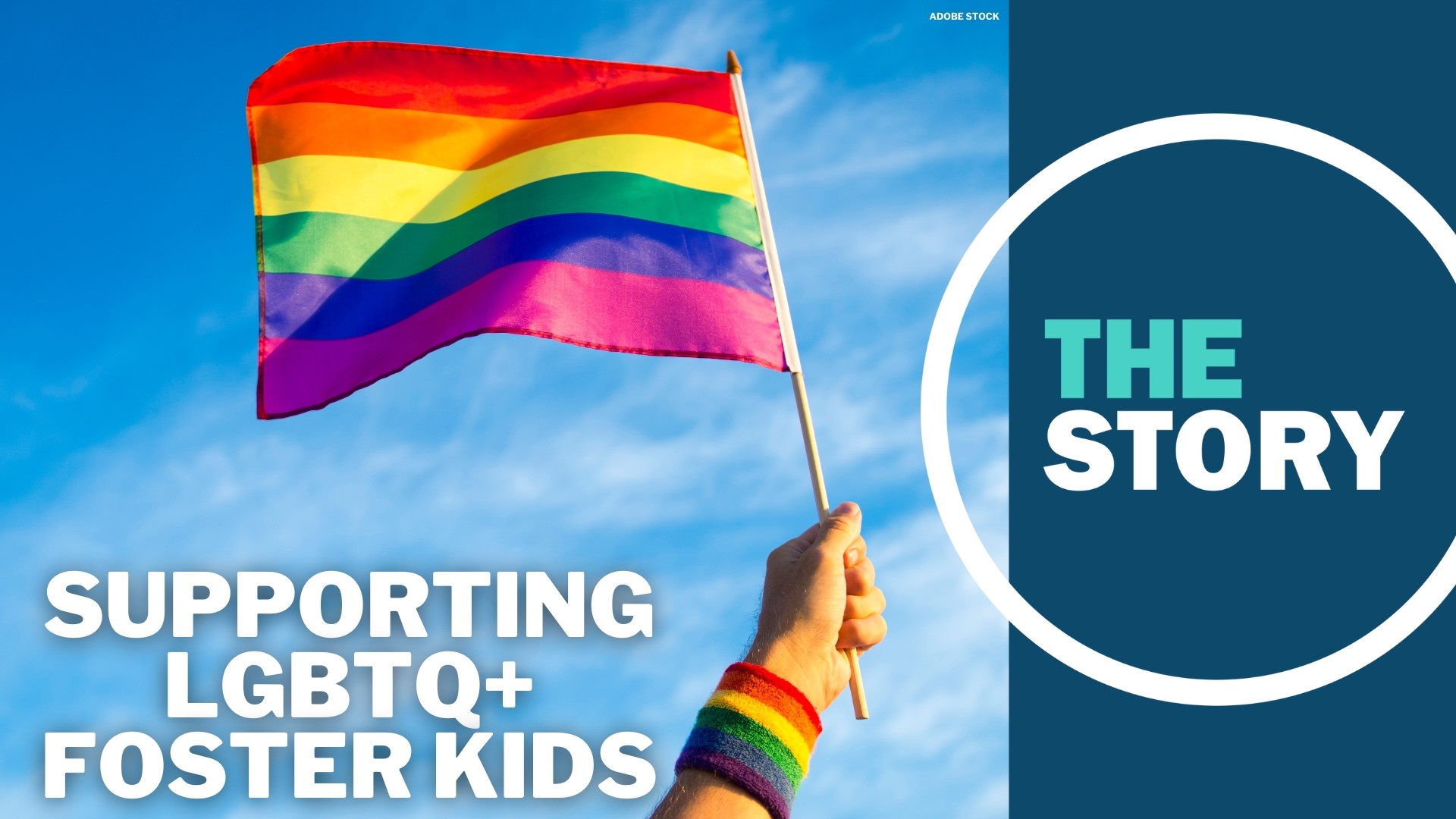PORTLAND, Ore. — In a perfect world, every child would be treated with care, love and compassion. But in the real world, that's not always the case. In fact, we can't always seem to agree on even the definitions of those terms, and it's led to cultural battles over rules focused on who can be a foster parent.
The U.S. Department of Health and Human Services is proposing a rule that would require anyone who wants to be a foster parent to support LGBTQ+ kids in their care. Oregon already has its own version of that rule, one that became the subject of a lawsuit last year.
Jessica Bates is a single mother of five children living out in Malheur County. She says that she wants to foster two siblings and later adopt them. But when filling out the paperwork for foster parent training, she came across Oregon's requirement that she support LGBTQ+ kids.
Under Oregon law, that support comes with specific expectations. Foster parents must allow kids to be open about their sexual orientation, let them use the name and pronouns that best suit their gender identity and let them dress accordingly. It also means, as a foster parent, facilitating the kind of medical care that's appropriate for their gender and sexual identity.
Bates said that those expectations conflicted with her beliefs as a Christian, and she wouldn't comply.
"I cannot support this behavior in a child," Bates wrote. "I have no problem loving them and accepting them as they are, but I would not encourage them in this behavior. I believe God gives us our gender/sex, and it's not something we get to choose."


She went on to say that providing gender-affirming medical care, such as hormone replacement therapy or puberty blockers, would constitute child abuse.
As a result, the Oregon Department of Human Services denied her application, saying that she did not meet the requirements for being a foster parent if she would not agree to the state's expectations.
RELATED: Case of eastern Oregon mom denied foster kids due to LGBTQ+ policy goes before federal judge
Bates sued the state in federal court, arguing that Oregon violated her First Amendment rights to free speech and freedom of religion. She asked the judge to suspend Oregon DHS' rules, but the judge ruled against her late last year.
"This Court questions whether plaintiff's willingness to 'love and support' a child is sufficient to ensure that the child will feel loved and supported," wrote Judge Adrienne Nelson in her opinion.
Judge Nelson went on to say that although Bates claims she would love an LGBTQ+ child in her care, she didn't seem to understand what "support" actually entails.
"Plaintiff takes too narrow a view of what it means to support a child's identity," the judge continued. "While plaintiff is correct that disagreement does not equate to disparagement, the Court also recognizes that the term 'rejection' takes many forms, and it includes the impact that 'invalidation' can have on an LGBTQ+ youth."
Bates' attorneys have appealed the ruling, which means that this case may be far from over.
Weighing the impact of discrimination
Oregon is one of 35 states, along with the District of Columbia and Puerto Rico, that have laws in place specifically protecting foster youth from discrimination based on their gender or sexual identity. Eight other states have laws protecting foster kids from discrimination based on their sexual orientation only. In the seven remaining states, there are no such rules in place.


The rule proposed by the federal HHS is intended to eliminate this inconsistency, making a rule very similar to Oregon's the national norm. It's part of a child welfare package aimed at supporting kids and families in the foster care system, and would require that caregivers be trained to provide for a child's needs related to their sexual orientation, gender identity and gender expression. It would also mandate that LGBTQ+ children are placed in a home free from hostility toward their identity.
Studies show that LGBTQ+ kids and teens are overrepresented in foster care nationwide. According to Children's Rights, a social justice advocacy group for children, a 2019 study found that 30% of youth in foster care identify as LGBTQ+, 5% of those transgender.
In the general population, roughly 11% of kids identify as LGBTQ+, and just over 1% are transgender.
A study by the Trevor Project, a nonprofit focused on suicide prevention for LGBTQ+ youth, found that being in foster care is also particularly difficult for youth from marginalized groups. Those who identify as LGBTQ+ had nearly four times greater odds of running away, being kicked out or abandoned compared to kids who were never in foster care.
Those youth also had three times greater odds of reporting a suicide attempt in the past year compared to those who had not been in the system.


Children's Rights found that 44% of LGBTQ+ youth in state custody reported that they were removed, ran away or were thrown out for reasons directly related to their identity.
In a letter of support sent to HHS Secretary Xavier Becerra, Oregon's U.S. Sen. Ron Wyden joined several other members of Congress in saying that the proposed rule "will help ensure LGBTQIA+ children in foster care feel safe and valued, and receive appropriate services without discrimination or prejudice."
"These youth deserve placements that are safe, affirm who they are, and have been cleared by well-trained caseworkers who understand their unique needs," the lawmakers continued.
But some Republican officials are pushing back, using similar arguments to those cited by Jessica Bates and her attorneys in Oregon. Conservative attorneys general from 19 states sent their own letter, arguing that religious people who want to become foster parents will face discrimination if they refuse to support LGBTQ+ kids.
"Caring for children in need is a duty of the Christian faith," the AGs wrote, in part. "The foster care system depends on individuals and organizations of faith ... Without faith-based organizations and foster homes, the foster care system would face a critical lack of placement options."
The Republican AGs suggested that adopting these rules would drive faith-based parents and organizations away, placing additional strain on the already-strained foster care system. They went on to say that many states across the country are facing an overwhelming number of kids in foster care, without enough homes to place them.
That's certainly been a chronic issue in Oregon, where the state's child welfare agency has been raked across the coals in recent years for sometimes housing kids in out-of-state facilities, hotels, offices and even former jails.
According to the state of Oregon, about 5,656 children were in the foster care system as of 2021 — the most recent data available. Of those, half lived with relatives. Nationwide, more than 391,000 children were in foster care as of 2021, according to an HHS report.

